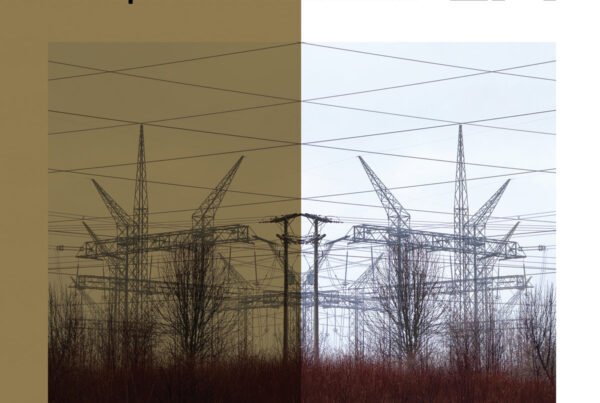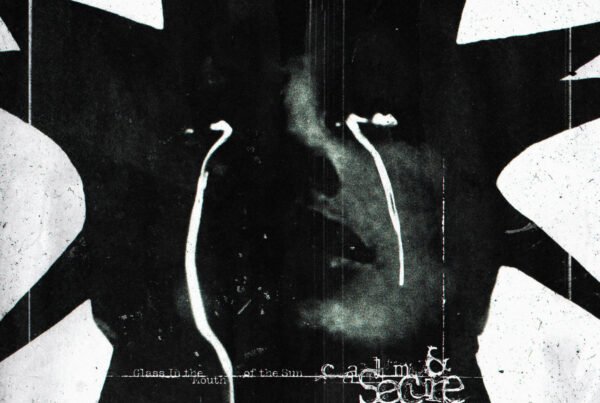Just when you thought that dread as a musical concept is a foregone conclusion, Briqueville pulls the rug from under your feet with IIII.
Release date: November 3, 2023 | Pelagic Records | Bandcamp | Facebook
I’ve always been particularly fond of haunting things, not limited to any medium or form. In musical context, the feeling of unease can be inflicted through various means and often appears in as many different shapes as there’s listeners to it, as personal fright and trepidation are some of the most subjective things there are. Usually the magnitude of this sensation is amped up via visual aesthetics and whatever else, as is the case with one Belgian act with some of the most creepy yet stunning and thought-inducing photographic artworks I’ve seen, anonymous musicians, and the general tone of things.
Briqueville has been a personal favourite of mine for a long time, not the least because of the overwhelmingly haunting yet vivid ambiance that has dominated all of their releases. The previous album Quelle from three years ago proved to be a definitive highlight of post-metal as a whole as far as I’m concerned, so obviously the announcement of a new album IIII had me thrilled head over heels. I stayed away from the singles and waited to have the album on my figurative hands in order to be able to fully engulf it at once. This practice was beneficial, albeit came with its own quirks; namely, after seeing the first comment about how ‘the added vocals really bring in something new’, I got a tad nervous. After all, the band has always lead with instruments as their voice, so this change could pose a significant threat. So did it?
No.
I could’ve – and maybe should’ve – guessed that obviously the new angle of introducing vocals as the centerpiece to instrumental surroundings couldn’t be farther away from the standard scheme of how that usually goes. Instead, the aerial vocalization (emphasis on -ization) acts as an instrument equal to the rest, and doesn’t counterintuitively wreck anything as is often the case, but somehow elevates the Briqueville experience to new heights. The eerie somewhat human voice is most importantly a textural addition that I now hope the band digs in deeper to, come the time for future recordings.
So now that the elephant in the room is well addressed, let’s focus on the music itself, which also has undergone some shifts and alterations in presentation and style.
It’s clear that Briqueville has done exactly what want they personally want to do throughout the band’s over decade old trek deep into the aural murks. At times it’s underlined with compositional decisions that are so clever they appear strangely ridiculous, and all you can do is to smirk like an idiot and nod along. That isn’t to say that there would be anything even remotely happy or funny in their output per se, but just exemplifies the fact that when you’re facing the unknown, it’s very hard if not impossible to tell in advance what is going to happen. Overall, that same idea applies through the entirety of IIII and its surprisingly short duration of 38 minutes.
“AKTE XVI” opens the album’s floodgates with drone synths and coldly echoing lo-fi guitar, and you can feel the distress slowly seeping in. Alternating between a wall of distortion riff and the more subtle ones, the synths and resemblances of melody change ever so inconspicuously before the scarce unintelligible spaced out vocals arrive. Topped with steady floor tom hits for a few minutes while the aforementioned sway in and out of your ears, everything comes to an unexpected halt without much of a release. The tension is so thick you could cut it with a knife, feeling simultaneously grating but oh, so good. Extra attention should be aimed at the fascinating field recordings that give everything a flair of sound design, not only on this track but on the entirety of IIII. And by extension on the entirety of the band’s discography, actually.
“AKTE XVII” picks up a more steady pace right away, calling back to Quelle more than the other tracks, continuing on a hallucinatory manner where the listener is somehow both inside of the music and still nowhere near it. Proceeding with a hair more traditional structure, the song delivers an earth-shattering crescendo before diving into one of the most striking outros I’ve heard in a long time. The steady pulse and disjointed rhythm flavoured with talkbox vocals/synth/didgeri-fucking-doo-ish sound is an example of Briqueville‘s compositional cleverness mentioned above, and hits home every single time. “AKTE XVIII” runs the same mile characteristically but focuses on the more dragging angles throughout, featuring insane synth lines and sound design that sooths me to a thousand year sleep with its excellence.
The density of the songs so far have been quite impenetrable even though some brief moments of air have been introduced here and there, and with “AKTE XIX” acting as a chamber-esque intermezzo before the final monolith “AKTE XX” that throughout it’s twelve minute duration ebbs and flows between americana vibes, stoner doom, and post-rock. In the end I was left waiting for that last hook instead of an elongated jam, but I refuse to complain about it either. It’s probably due to the closer that the overall rather short-ish length of IIII is actually more justifiable than it seemed at first glance, especially when paired with the mentioned density.
I wanted to end by saying that on IIII, Briqueville gives a face to the idea of unease, but that’d be a bit off wouldn’t it, with the people behind it being cloaked, indistinguishable and all. So instead, I’ll end by saying that instead of a face, Briqueville gives the idea of unease its beckoning and haunting voice, that lurks around the darkest of corners, whispering unfathomable things to your ear while you try to somehow just manage your day to day. And even when you look out the window or leave the room and the moment of dread ends, it lingers on somewhere deep in you, like a seed of panic sown in the wake of an aural plough, waiting to sprout at an unforetold time.






